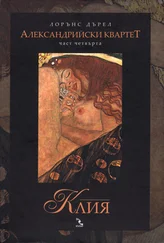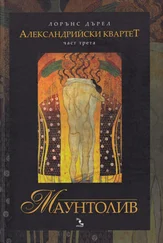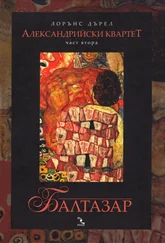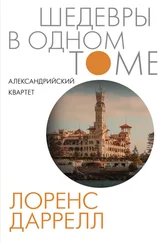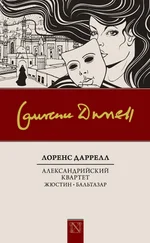Лоренс Даррелл - Prospero's Cell
Здесь есть возможность читать онлайн «Лоренс Даррелл - Prospero's Cell» весь текст электронной книги совершенно бесплатно (целиком полную версию без сокращений). В некоторых случаях можно слушать аудио, скачать через торрент в формате fb2 и присутствует краткое содержание. Жанр: Проза, на английском языке. Описание произведения, (предисловие) а так же отзывы посетителей доступны на портале библиотеки ЛибКат.
- Название:Prospero's Cell
- Автор:
- Жанр:
- Год:неизвестен
- ISBN:нет данных
- Рейтинг книги:4 / 5. Голосов: 2
-
Избранное:Добавить в избранное
- Отзывы:
-
Ваша оценка:
- 80
- 1
- 2
- 3
- 4
- 5
Prospero's Cell: краткое содержание, описание и аннотация
Предлагаем к чтению аннотацию, описание, краткое содержание или предисловие (зависит от того, что написал сам автор книги «Prospero's Cell»). Если вы не нашли необходимую информацию о книге — напишите в комментариях, мы постараемся отыскать её.
Prospero's Cell — читать онлайн бесплатно полную книгу (весь текст) целиком
Ниже представлен текст книги, разбитый по страницам. Система сохранения места последней прочитанной страницы, позволяет с удобством читать онлайн бесплатно книгу «Prospero's Cell», без необходимости каждый раз заново искать на чём Вы остановились. Поставьте закладку, и сможете в любой момент перейти на страницу, на которой закончили чтение.
Интервал:
Закладка:
29.11.37
When the Ionian Island were ceded to Greece, and the evacuation began, the Ionians were horrified to learn that extensive demolitions were to be carried out on the forts. As they had contributed in taxation about two-thirds of the total cost of building the fortresses, they were naturally bitter. Kirkwall, who showed some considerable sympathy for the Greeks, and for the Corcyreans in particular, is indignant too. His detailed description of the demolition work being carried out during that rainy February of 1864 is a brilliant piece of work.
To the English colony it was as exciting as a prolonged firework display. 'On the afternoon of Tuesday, 29th March, numbers of English ladies and gentlemen, in spite of wind, heavy rain, and rolling seas, crossed over to Vido in order to witness from the keep the destruction of the strong Lunette battery to the west of the island.'
To the Ionians, however, all this earnest blowing up of 'notable ramps, earthworks, embrasures' only underlined the bitterness of the departure. One disgusted Ionian is recorded to have remarked to Kirkwall as a puff of smoke and a jet of falling clods marked the blowing up of another 'notable' rampart: 'I wish Lord Roosel were on top of it.'
'The earlier mines', writes Kirkwall, 'were fired by long trains of powder laid on the ground in furrows and slow burning fuses. But after the arrival of a Voltaic Battery from England the affair was arranged in the Scientific Manner which suited better to this Age of Wonders.'
The discreet picnics among the olive-groves, the memoranda, the protocols, the bustles, sidewhiskers, long top-boots, tea-cosies, mittens, rock-cakes, chutney, bolus, dignity, incompetence, bookkeeping, virtue, church bazaars; you will find traces of all of them if you look deeply enough. The flash of red hunting coats through the olive-groves as the officers galloped over the island on their dangerous paper-chases; the declarations of love among the cypresses, the red-faced sportsmen setting out for Albania. Big Tom, Adams, Leech, and 'Fusty' Andrews; Lockler, Jones, and Jervis White-Jervis. Dr. Anstead fussily visiting these 'embayed seas' to record the lamentable venality of the islanders. Edward Lear's gloomy pictures of Perama and the Hyallic Gulf. Caught once and for all and absorbed into the atmosphere and line of the landscape with its arbours, mountains, and Byronic moonlight; preserved in a style of moustache among the peasants, or in the top-hatted mommets of the Karaghiozis pantheon, or in the fragmentary touching love of the small urchins who will run crying beside the antiquated horse-carriages which no taxis can ever oust, offering 'flowers for the Englishman's lady' in accents no German or Frenchman has ever heard. Nothing has been lost of England's inner accent; yet the forts lie empty of ordnance and cannon-balls. The battleships come now as visitors. And Turnock's Royal Hotel where Anstead met with 'food, civility, and moderate prices' has left no trace behind it.
1.12.37
The French burned the Golden Book in which the names of the Venetian families were inscribed, and the aristocracy died in the flames to be reborn, phoenix-like, in titles stiff and unreal as old brocade.
The British did their best to reinstate the aristocratic tradition-as the Count would say 'by abstract principles'.
When Britain left the abrupt fierce history of the island seemed to cease, and the gradual decay of communications and facilities made it more than ever remote, mysterious, and hard to reach. The landscape reverted to its own prolix disordered pattern. The stout roads have remained to this day; and the water-supply of the town, despite periodic hitches, still operates as smoothly as when Adams first devised and carried out its building. But there is one English eccentricity remarked by the natives which the Count has missed; the English demand for houses with lavatories. An 'English' house in the island, has come to mean a house with a lavatory; and the landlord of such a house will charge almost double the ordinary rent for so remarkable an innovation. Bathrooms are even rarer and are considered a dangerous and rather satanic contrivance. For the peasants a bath is something you are sometimes forced to take by the doctor as a medicinal measure; the idea of cleanliness does not enter into it. Theodore often quotes the old peasant who reverently crossed himself when shown the fine tiled bathroom at the Count's country house and said: 'Pray God, my Lord, that you will never need it.'
Nimiec has an anecdote, unsavoury if illustrative, which should find a place in the appendix to Harington's Metamorphoses; he arrived at a fishing village in Merlera on one of his fishing jaunts, and was housed in a small cottage with an earth lavatory, primitive and so full of flies that he drew the attention of his host to its condition. His host said briskly, 'Flies? Of course there are flies. If you could do as we all do and wait until just before the midday meal you would not find a fly in the lavatory. They all come round to the kitchen.'
3.1.38
Jervis states that there are only three considerable historians of the island, but if one must speak the truth, there is only one history of the island written in the true Corcyrean spirit, gay, mendacious, and self-assured. This is by Andrea Di Marmora, who published it in Venice in 1670. His record of Corcyra's history is justly considered a standard work by Zarian. 'I confess', says Jervis, 'to have been rather startled when I read in this author that the Romans conquered Britain and defeated the Parthians owing to the assistance received from the Corcyreans, but there was a certain charm in reading the history of Rome in such a new light.'
4.1.38
The Saint does not seem to have played a great part in the age of British Protection; it is presumed that he was sulking since on one occasion the Governor (a dull and brutish fellow) refused the islanders the use of a military band to celebrate Spiridion's festival.
Yet I am happy to find in Kirkwall that a certain Colonel Wright of the Royal Artillery, set matters right with the old fellow. He obtained leave for the saluting battery in the fort to remain untouched as, says Kirkwall, 'he thought it hard that the Corfiots should be denied the pleasure of saluting St. Spiro'.
There is no statue to Colonel Wright on the esplanade. But it is to be hoped that his name has been passed up by Spiridion for inscription in the Golden Book — not of St. Mark, but of St. Peter.
5.1.38
Shooting rabbits on the island of Vido my brother records the following conversation with a man about to embark in a rowingboat for the mainland.
'Good morning.'
'Good morning.'
'Where are you from?'
'From the prison.'
'Where are you going?'
'Home. I get every week-end off.'
'What is your sentence?'
'A life sentence. I am a murderer.'
Vido was once nobly wooded; but the French cut down all the trees in order to facilitate military operations. The prison is a pleasant white-washed building standing back from the sea. The prisoners themselves keep up a steady trade in little carved objects of wood and beaten metal; workmanship of a stylized Byzantine kind, but sensitive and pleasant in its crude way.
6.1.38
The flying-boats of Imperial Airways have discovered Govino, where the earthworks and embrasures of the Venetian port sink yearly deeper in the silt. Here in the shadow of Pantocratoras the big-bellied Shorts circle and hover until their keels suddenly rip open the emerald lake surface, and the long shavings of water curl up on each side. Spiro is the favourite taxi-driver of the pilots; they like his Brooklyn drawl, his boasting, his coyness; he combines the air of a chief conspirator with a voice like a bass viol. His devotion to England is so flamboyant that he is known locally as Spiro Americanos. Prodigious drinker of beer, he resembles a cask with legs; coiner of oaths and roaring blasphemies, he adores little children, and never sides out in his battered Dodge without two at least sitting beside him listening to his stories. We never see 'his pilots'—as he calls them — yet one of them lives in our memory as the author of a gesture in keeping with the spirit of the island. One of these English boys on the homeward trip takes back a bunch of Corcyrean flowers for his wife; at four in the morning, an hour before the departure, he and Spiro drive out to Canoni and gather flowers in the light of the headlamps from that dewdrenched sward above Mouse Island. With the first light of dawn he is in the air, heading for England, with his wet bunch of narcissi or grave asphodel. It is the kind of little devotion that touches the raw heart of Spiro as he pants and grunts up the slopes of Canoni, his big fists full of wet flowers, and his sleepy mind thinking of the English girl who to-morrow will touch this lovely evidence of the island's perpetual spring. Spiro is dead.
Читать дальшеИнтервал:
Закладка:
Похожие книги на «Prospero's Cell»
Представляем Вашему вниманию похожие книги на «Prospero's Cell» списком для выбора. Мы отобрали схожую по названию и смыслу литературу в надежде предоставить читателям больше вариантов отыскать новые, интересные, ещё непрочитанные произведения.
Обсуждение, отзывы о книге «Prospero's Cell» и просто собственные мнения читателей. Оставьте ваши комментарии, напишите, что Вы думаете о произведении, его смысле или главных героях. Укажите что конкретно понравилось, а что нет, и почему Вы так считаете.


